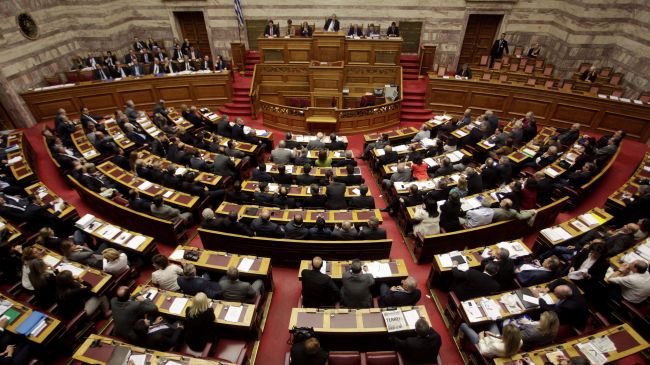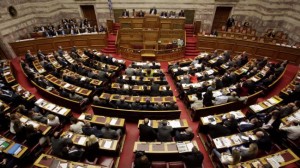
 The Greece parliament has adopted an 18.5-billion-euro (23.6-billion-US dollar) austerity package amid clashes between police and angry protesters in the capital Athens.
The Greece parliament has adopted an 18.5-billion-euro (23.6-billion-US dollar) austerity package amid clashes between police and angry protesters in the capital Athens.
On Wednesday, the Greek lawmakers voted for the bill that cuts pensions by up to 15%, reduces some wages by a third, and raises the retirement age to 67.
“These measures essentially bring us many years back. All the labor rights the Greek people won post-World War II and post-dictatorship are taken back,” union activist Marie Lavrentiadou said, adding, “The measures are not voted in the conscience of the Greek people, and they can be ousted.”
According to Athanassios Nakos, second deputy speaker of the parliament, 153 out of the 299 lawmakers voted in favor of the tough measures.
The government says the cuts are necessary for Greece to pay back its debts.
“Today we took a big and decisive step towards growth,” Greek Prime Minister Antonis Samaras said after the vote, adding, “These are unfair measures and there is no reason to beautify them.”
Samaras’ New Democracy Party and its Socialist PASOK party supported the bill, which is due to be implemented by 2016.
Earlier in the day, Greek police clashed with angry protesters in the capital as the country’s lawmakers began debating the new austerity measures.
Clashes broke out outside the Greek parliament when 70,000 anti-austerity protesters poured into the streets leading to the parliament building.
Greece has been at the epicenter of the eurozone debt crisis and is experiencing its fifth year of recession, while harsh austerity measures have left about half a million people without jobs.
One in every five Greek workers is currently unemployed, banks are in a shaky position, and pensions and salaries have been slashed by up to 40 percent.
Greek youths have also been badly affected, and more than half of them are unemployed.
The long-drawn-out eurozone debt crisis, which began in Greece in late 2009 and reached Italy, Spain, and France in 2011, is viewed as a threat not only to Europe but also to many of the world’s other developed economies.







